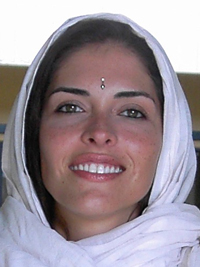“Seek Truth Yourself” - Bhagwan Mahavira
His Holiness Acharya Mahapragya surpassed his role as the tenth supreme spiritual leader to the Terapanth Jains and contributed an integral part in the legacy for non-violence founded by his predecessor, Acharya Ganadhipati Tulsi. While Tulsi intuited the fast changes towards an increasingly globalized world and strived to place the Terapanth community on the forefront of peace initiatives, Mahapragya worked diligently to dig up the gems of wisdom from the Jain tradition that had been obscured by dogma so that he could present them to the world in light of modern problems. Acharya Mahapragya strove throughout his life to spread the message of non-violence and health to as many people as he could reach, and his activism through the Anuvrat movement for world peace and the Ahimsa Yatra movement (2001-2009) supported the great transformation of the Terapanth community into the twenty-first century. Furthermore his support of the Jain Vishwa Bharati University and of the saman order has enabled his message to engage dialogue with a welcoming audience of students, scholars, and truth-seekers in the West.
H.H. Mahapragya’s formulation of praxis for peace is unique because, while inspired by the central Jain teaching of ahimsa, it has the potential to harmoniously synchronize with other religious traditions and their distinct teachings regarding moderation, truth, and peace. While Mahapragya’s formulations of yogic systems including preksa meditation and the Science of Living spiritual curriculum have found most of their support among the Jain community, these systems are not founded with any political agenda and do not require any religious conversion. Because of this non-sectarian quality, Preksha meditation and the Science of Living curriculum has recently found a home in the West within academic institutions including the University of London and Florida International University.
Acharyashree’s call for the moral awakening of the individual was based on his deep conviction that each soul contributes to society and that the health of the individual is foundational to the quality of life for all living beings in the world. This great visionary scholar, and leader sought to identify the common essence within a divided and conquered humanity and found it in individualized religious experience. He defined this common individual experience of pure, unadulterated religion as the “perception of the soul”, and distinguished it from the more traditionally based components of religions, such as ritual, tradition, and ideology. His insistence that anyone from any religious tradition could fall prey to the misperceptions created by attachment to transient worldly things, to the violence that springs from such possessiveness, and to the intolerance that is bred by faulty notions of distinction and difference. His concern over the state of affairs the world over informed his oeuvre and inspired his social activism. Also, his relativist, or more precisely, perspectivalist viewpoint highlighted his authentic invitation to scholars, world leaders, and individuals to participation in inter-faith dialogue and cooperation.
Although we are all sad that our great teacher and guide is no more, his message remains a song of truth in our hearts and a light of inspiration in our minds.
 Karyna Do Monte
Karyna Do Monte